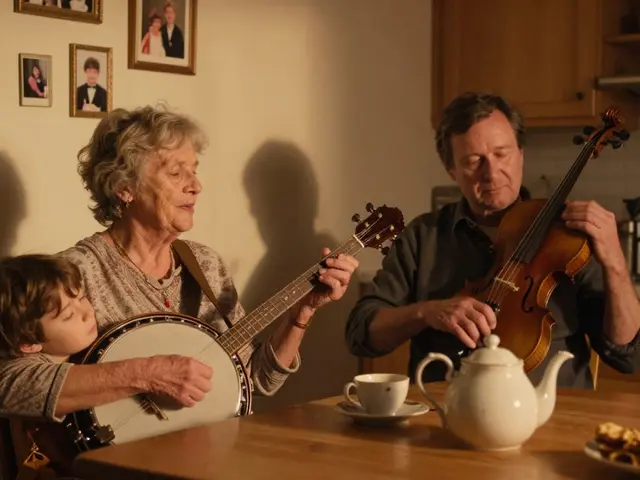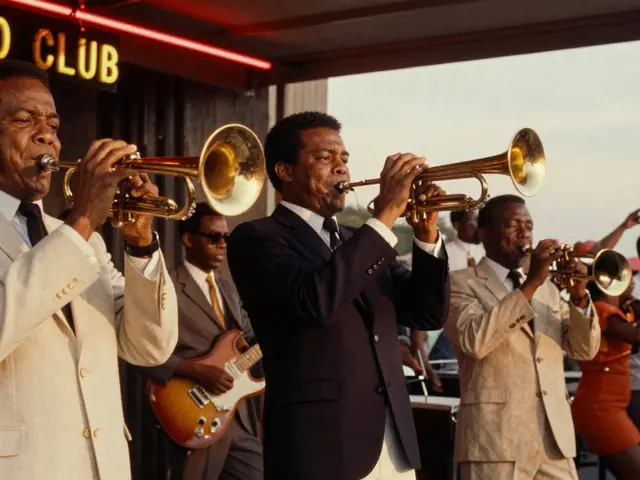The Timeless Journey of Folk Music
The soulful melodies of folk music have traversed through centuries, bearing the essence of storytelling, traditions, and the collective memory of communities. Originating in the times when histories were oral and not written, folk music acted as the bedrock for preserving cultures, teaching lessons, and transmitting stories from one generation to the next. Its beauty lies in its simplicity and its ability to convey profound messages through minimalistic arrangements. Rooted deeply in the daily lives, struggles, and celebrations of the common folk, this genre has an extraordinary ability to resonate with people across diverse cultural landscapes.
Folk music mirrors the life of the people who create it, adapting to the times while maintaining its core characteristics of storytelling and cultural reflection. What makes folk music especially fascinating is its vast diversity and adaptability. Each region has developed its unique style and interpretation, incorporating local instruments, languages, and storytelling methods. This diversity not only enriches the genre but also showcases the universal human experience, reflected through the lens of various cultures and historical contexts.
Instruments That Speak Volumes
The instruments used in folk music are as varied and rich in history as the music itself. From the dulcet tones of the Celtic harp to the rhythmic strums of the balalaika in Russia, these instruments contribute significantly to the unique soundscapes of folk music. Many of these instruments have humble origins, created from the materials readily available in the environment, further emphasizing the genre's connection to everyday life. The personal nature of these instruments allows for a level of expression that is both raw and deeply moving, enabling artists to convey stories and emotions with a compelling authenticity.
Exploring the instruments of folk music is like taking a journey around the world. In Australia, the didgeridoo brings the ancient sounds of Aboriginal culture to life, while in America, the banjo's lively twangs narrate stories of resilience and hope. Each instrument carries the weight of its cultural heritage, adding layers of meaning to the music. The mastery of these instruments by folk musicians showcases not only their technical skill but also their deep understanding and respect for their cultural narratives.
The Art of Storytelling Through Melodies
At the heart of folk music is storytelling, a timeless art that transcends cultures and generations. Through melodies, folk songs tell tales of love and loss, battles and victories, despair and hope. These narratives serve not only as entertainment but also as a means to educate, convey moral lessons, and preserve the history and folklore of a culture. The power of folk music storytelling lies in its ability to connect with listeners on an emotional level, drawing them into the story and allowing them to experience the emotions and lessons firsthand.
The universality of the themes explored in folk music is a testament to its enduring relevance. Whether it's a song about the trials of daily life from the Scottish Highlands or a ballad capturing the spirit of rebellion in Latin America, listeners from anywhere can find a reflection of human experiences in the lyrics. This connection is what makes folk music an invaluable tool for cultural exchange and mutual understanding, bridging gaps between disparate communities and fostering a sense of unity.
Folk Music in the Modern World
Despite its ancient roots, folk music remains vibrantly alive in the modern world, continually evolving while staying true to its core principles. Contemporary folk artists blend traditional elements with modern influences, creating innovative sounds that still honor their cultural heritage. This fusion has introduced folk music to new audiences, ensuring its survival and continued relevance in an ever-changing musical landscape. Festivals, live performances, and digital platforms play a significant role in keeping folk music accessible to a global audience, celebrating its rich heritage while embracing new interpretations and influences.
The enduring appeal of folk music in today's society speaks volumes about its universality and the deep human need for stories and connections. As we face global challenges and strive for a more interconnected world, folk music offers a beacon of hope and understanding, reminding us of our shared humanity. In its melodies and stories, we find comfort, strength, and a sense of belonging, proving that despite our differences, we are profoundly connected by the universal language of music.






